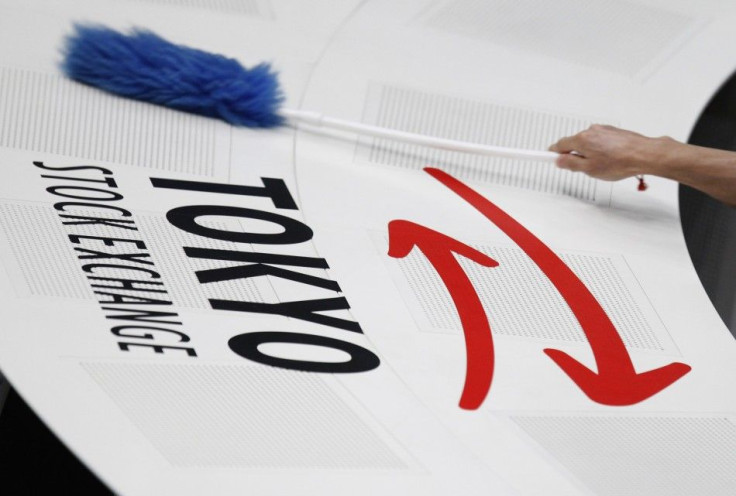Asian Markets Rise On Draghi’s Comments

Asian markets rose Friday as investor sentiment turned positive following the promise from European Central Bank to take necessary steps to save the euro zone from collapsing.
Japan's Nikkei Stock Average rose 1.40 percent or 118.61 points to 8561.71. Among major gainers were Kobe Steel Ltd (6.94 percent), Sumco Corp (5.88 percent) and Mazda Motor Corp (5.68 percent).
The Chinese Shanghai Composite rose 0.48 percent or 10.17 points to 2136.17. Hong Kong's Hang Seng was up 1.95 percent or 367.86 points to 19260.65. Among major gainers were Sands China Ltd (3.55 percent) and CNOOC Ltd (2.97 percent).
South Korea’s KOSPI Composite Index was up 1.95 percent or 34.74 points to 1817.21. Shares of Samsung Electronics Co Ltd rose 4.35 percent, and shares of Hyundai Motor Co advanced 2.01 percent.
India's BSE Sensex rose 1.54 percent or 257.01 points to 16896.83. Major gainers were Tata Motors Ltd (3.25 percent), Suzlon Energy Ltd (2.61 percent) and Sesa Goa (1.96 percent).
Markets welcomed ECB President Mario Draghi’s pledge Thursday to do whatever it takes to save the euro. The yield on the 10-year government bonds in both Spain and Italy plunged after Draghi hinted that the Bank might restart sovereign bond purchases under its Securities Market Programme, which has been dormant for around four months.
Draghi suggested that the size of sovereign risk premium in Spain and Italy was hampering the functioning of the monetary policy transmission channel and was therefore something that came within the mandate of the central bank.
Market confidence was boosted as investors sensed that the central banks, especially the ECB, could announce monetary easing measures to strengthen the global economy. Investors feel that bold measures, including easing in the monetary policy, will give a much-needed thrust to boost liquidity in the European financial system.
However, investor sentiment could turn fragile as they continue to worry about the uncertainties in the euro zone economy. “The fiscal problems of Spain and Italy are likely to necessitate full-blown sovereign bail-outs. Not only is the required size of these operations far in excess of what the ECB would probably be prepared to commit to bond purchases, but the Bank itself remains ideologically opposed to monetary financing of sovereign debt,” Capital Economics said in a note.
© Copyright IBTimes 2024. All rights reserved.











